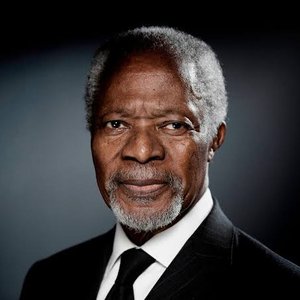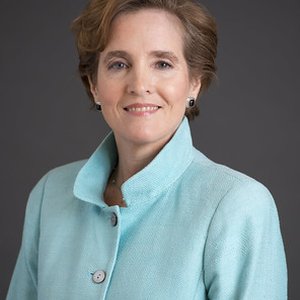Education and
Security and Peacebuilding
Key message
Key challenges
- When peacebuilding efforts fail, the costs to countries due to lost education and human capital are high. Over a three-year period, conflict cost nearly US$470 million (1.7% of GDP) in the DRC and US$2.9 billion (1.3% of GDP) in Pakistan.
(Jones & Naylor, 2014) - Education often comes under attack. Across 2022 and 2023, there were 6,000 reported attacks on schools and universities, students and educators and cases of the military use of educational facilities. At least 10,000 students, teachers, professors and education staff were killed, injured, abducted, arrested or otherwise harmed as a result of these attacks.
(GCPEA, 2024) - Attacks on education are increasing. Compared to the previous two years, attacks on education and military use increased by nearly 20% in 2022 and 2023.
(GCPEA, 2024)
Make the case
- Education helps foster social cohesion and resilience. Education empowers children and young people with knowledge, skills and attitudes that are invaluable for preventing conflicts and violence.
(UNESCO, 2022) - Education builds sustainable and lasting peace. Over the long-term, education can help to redistribute resources and opportunity more equitably, bring recognition and respect to diverse groups and identities, ensure representation through civic participation, and encourage reconciliation.
(Novelli et al., 2015) - Education strengthens interconnectedness and peaceful coexistence. Education is a powerful tool to create constructive dialogues that bring individuals and groups together. It allows young individuals to enhance their critical thinking skills that prepare them to better understand the root causes of violence and build resistance against extreme ideologies.
(UNESCO, 2022) - Equitable education makes communities safer. The likelihood of experiencing violent conflict doubles in countries with high education inequality between ethnic
and religious groups.
(FHI360, 2016) - Education can empower youth to solve conflict in non-violent ways. It can empower young people to engage in peace initiatives and become agents of change to positively contribute to issues in their communities.
(UNESCO, 2022) - Education can channel tensions into peaceful actions. Individuals and communities with higher levels of education are more likely to channel their concerns through nonviolent civil movements, like protests, rallies, and boycotts.
(Wang et al., 2015) (Shaykhutdinov, 2011) - Schools can play important roles in reconciliation and rebuilding in post-conflict communities. Integrated schools positively influence minority group identity and a sense of forgiveness, lessening discriminatory attitudes and creating an environment ripe for healing.
(Alexander & Christia, 2011) (Hansson et al., 2013) - Peace education — including human rights, civics, and multicultural education — can help to prevent future violence. Peace education interventions can lessen youth aggression, bullying and support of violence, and improve the probability that students will try to prevent conflict.
(Barakat et al., 2013) - Education underpins the investments made in traditional security and peacebuilding efforts. Education builds capacity and supports the development of social cohesion, reintegration, and economic growth for all, which are integral to the success of broader peacebuilding interventions.
(Novelli, 2015) - Education in the early years contributes to peacebuilding in the later years. Early childhood education has been shown to reduce violent behaviour in later life. In Lebanon, early childhood interventions for Palestinian refugees has resulted in greater harmony and reduced conflict.
(Walker et al., 2011) (UNICEF, 2015) - Increased levels of education reduce a country’s risk of armed conflict. Each additional year of schooling decreases the chance of a young person engaging in violent conflict by 20%.
(GPE, 2015)
Key opinions

Kofi Annan
Former Secretary-General of the United Nations
Education is, quite simply, peacebuilding by another name. It is the most effective form of defence spending there is.

Alice Albright
CEO of Millennium Challenge Corporation
“Education is the single best investment a country can make to raise to the most pressing challenges of our time. In an interconnected world, an educated population – especially girls – is an insurance policy for every aspect of a country’s future development, with wide-ranging benefits extending to health, economic growth, peace and stability.
However, economic pressures brought on by the Covid-19 pandemic are squeezing education budgets around the world, just as investments are needed more than ever before. Sustaining domestic and global education budgets around the world is the key to a shared future fit for our children.”
However, economic pressures brought on by the Covid-19 pandemic are squeezing education budgets around the world, just as investments are needed more than ever before. Sustaining domestic and global education budgets around the world is the key to a shared future fit for our children.”
Key talking points
- Quality and inclusive education is the foundation for peaceful societies.
- When education is equally accessible, safe spaces are provided from primary through to higher education, and there are strong links to opportunities in the labour market, the risks of radicalisation and vulnerability to extremism are lower.
- Historically, countries with higher levels of education have been less likely to engage in violent conflict.
- Education plays a fundamental role in sustaining peace and reconciliation following conflict.
Share This Resource
Similar Themes




